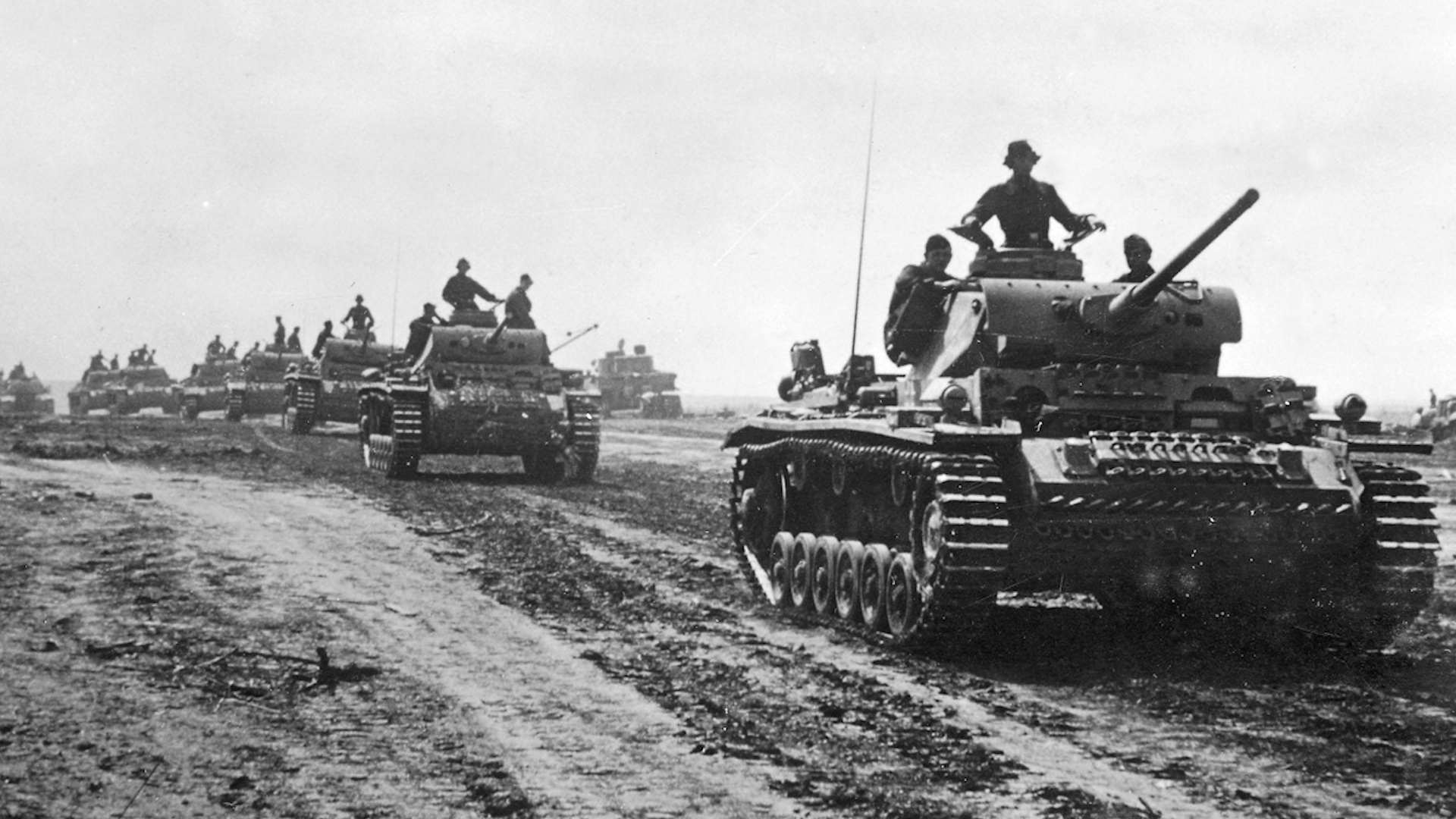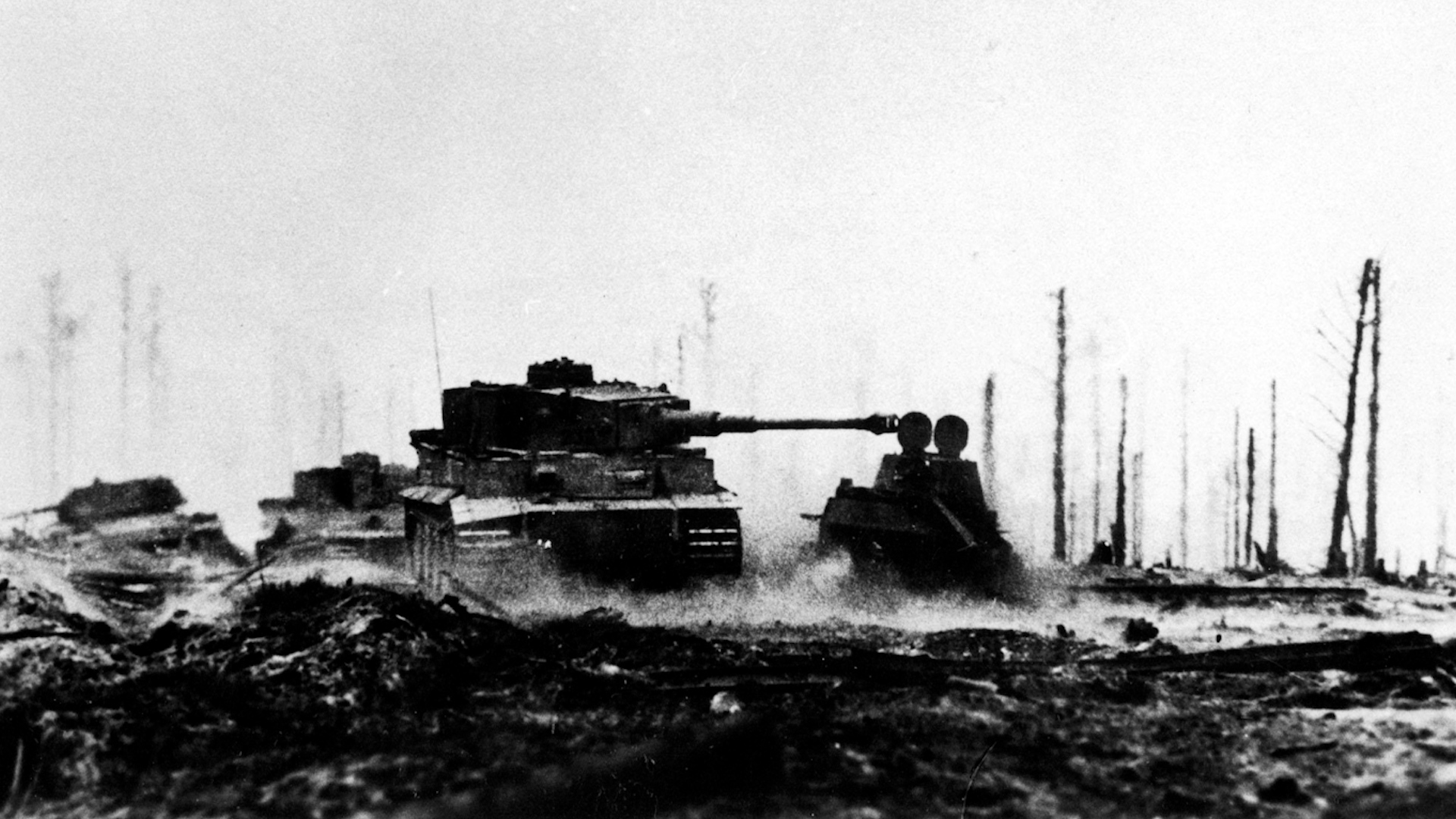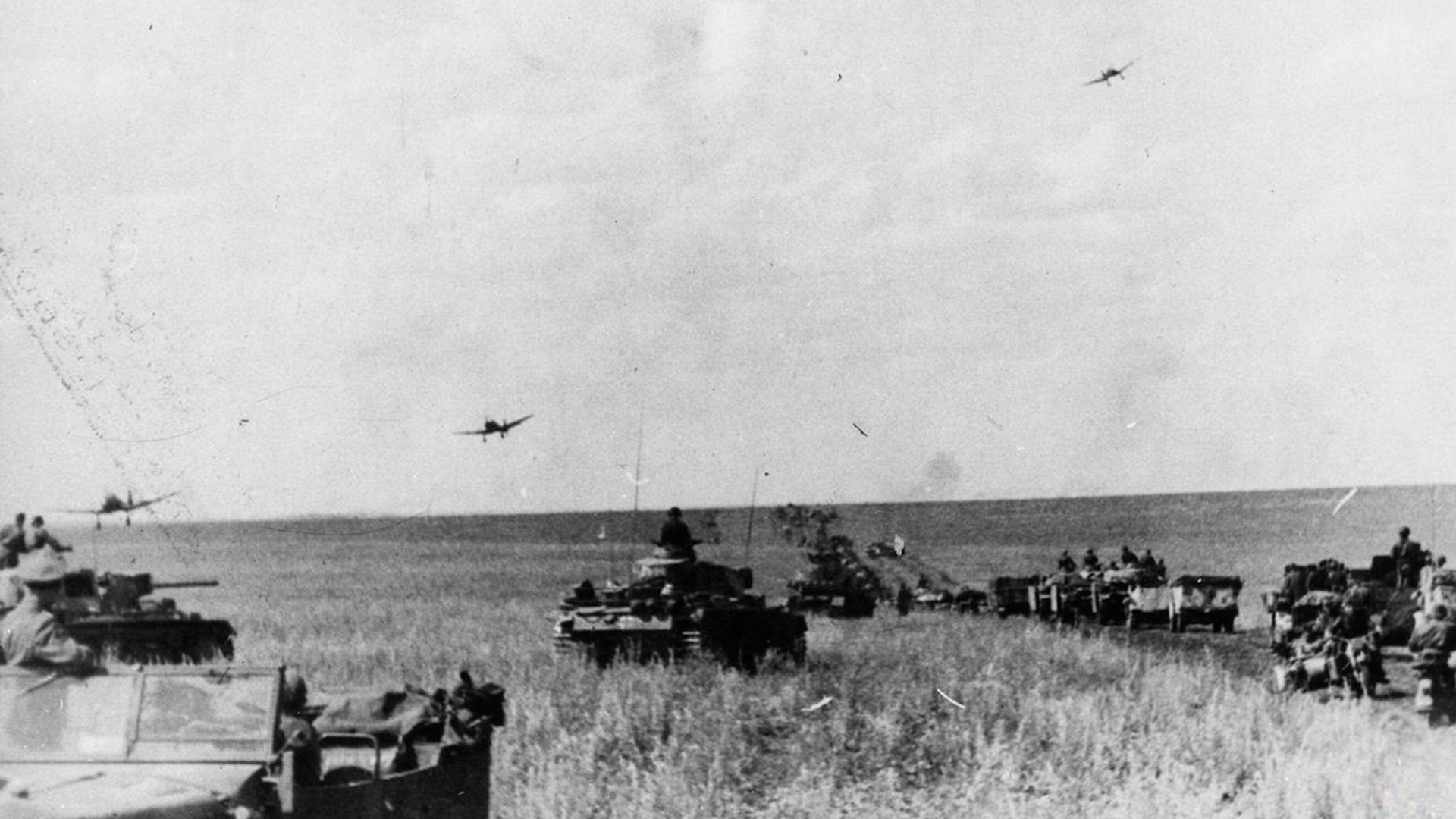
Battle of Kursk: Anniversary of largest tank battle in history as conflict returns to Russian region

Today marks the anniversary of the Second World War Battle for Kursk – the region which has again become a focus point 80 years later following the Ukrainian surprise offensive catching Russian forces off guard.
The WWII battle of Kursk is still regarded as the biggest tank battle in history.
It was seen as Germany's last chance to regain any dominance on the Eastern Front during the Second World War but, despite a huge planned assault on Soviet troops using heavy tanks, artillery and air power, delays by German dictator Adolf Hitler presented the Soviets with ample time to prepare.
The Soviets became aware of the German plans after the British at Bletchley Park cracked the Lorenz cipher, allowing them to read secret high-level German communications.
Overhead saw the Luftwaffe and the Soviet Air Force battle for control of the skies – it is believed that between 5 and 8 July, the Soviet Air Force lost more than 500 aircraft.
On the ground, fighting took place at close range with opposing tanks manoeuvring amongst each other.
The German plan to wipe out the Red Army once and for all failed, but not before both sides experienced serious casualties.

Overall during the various phases of the six-week battle of Kursk, the Germans are believed to have lost 165,000 men, between 760 to 1,200 tanks, and 681 aircraft.
The Red Army lost in the region of 600,000 troops and between 6,000 to 7,000 tanks.
Specific numbers are still debated, but it is estimated that the Battle of Kursk caused around 800,000 Soviet casualties and 200,000 German casualties.
The battle of Kursk is considered as the biggest battle in the history of warfare with the opening day aerial battles also thought to be the greatest losses of aircraft in a single day in history.

Now 80 years later, the Ukrainian armed forces have carried out a lightning incursion into the Kursk region, claiming to have secured more than 1,200 sq km of land in this action after taking Moscow by surprise.
This latest military action resulted in large numbers of Russian troops being captured – a good bargaining tool to get Ukrainian prisoners back – and provided a much-needed morale boost for the Ukrainian armed forces and the wider population.
It is believed that Ukraine exploited a weakness in Russia's electronic warfare coverage along this section of the border, deploying interceptor drones to knock out Russian reconnaissance capabilities, and using short-range jammers to cover the attack.
This in turn prevented Russian artillery from targeting approaching Ukrainian forces, who used a variety of fast vehicles.
British-donated Challenger 2 main battle tanks have been used by the Ukrainian armed forces inside Russia's border, BFBS Forces News understands.
The use of such weapons has helped the Ukrainian Armed Forces seize areas including the town of Sudzha, six miles from the border.
The former Commander of US Army Europe has told BFBS Forces News he is confident Ukraine can continue retaking territory in its counter-offensive.
Retired Lieutenant General Ben Hodges said has been "impressed" by the "underestimated Ukrainians".
He added: "The Russians underestimated the Ukrainians. Their ability to marshal forces to protect the information, I can only guess is part of the reason they were so successful in surprising the Russians.
"Where, when and how they launched this counter-offensive not only shows the level of discipline is very good.
"They compartmentalised information, and they must have created some sort of counter-drone capabilities that have, degraded, aided, or masked Russia's ability to see what was going on."
Lt Gen Hodges says that "the logistics" and how they sustain their offensive now become the focus as it enters a third week.
There have been some critics of this operation who believe that it is a gamble that may not pay off and they are taking valuable troops away from the Donetsk front, to Kursk.
"We'll find out soon," said the former Commander of US Army Europe.
He added: "The Ukrainians know this area better than any of us will ever know it. They know who the Russians are.
"They understand the Russians, perhaps they may have even surprised themselves that it's gone as well as it has, but they seem thus far to have been well prepared to do what they're doing."
However, Lt Gen Hodges warned: "Eventually, somehow, Russia will begin to pull forces together, apply pressure against this."
However, he does not think this is a standalone event. He says: "I think this really is part of a larger overall multi-domain operation."









